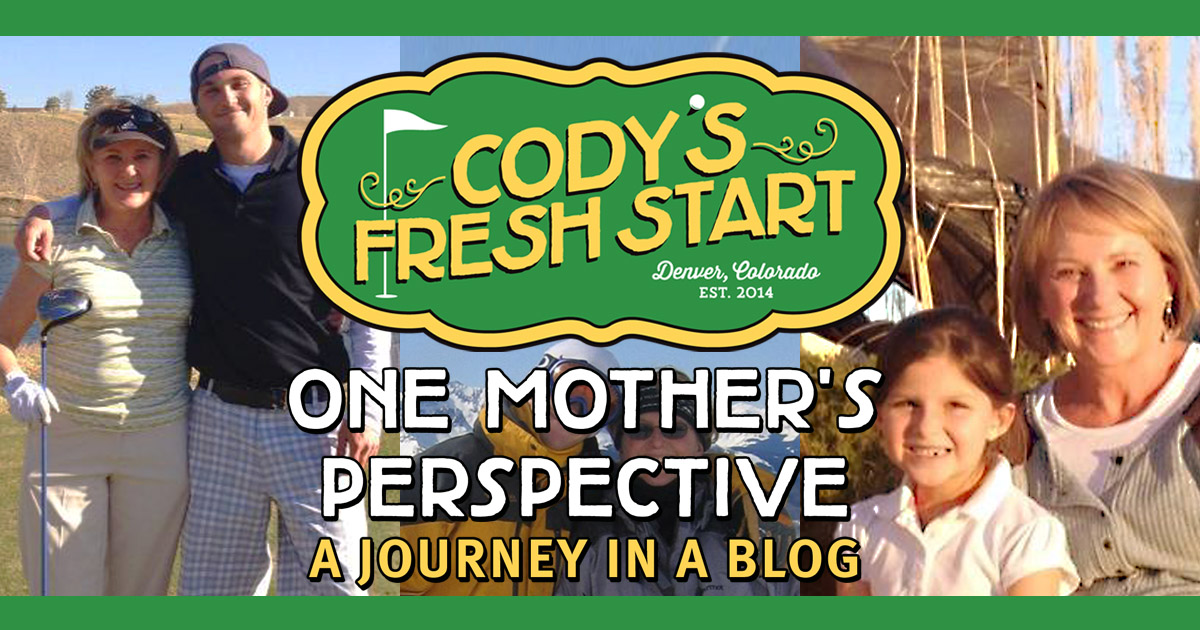By Mary Cucarola – 2/5/21
“Connection is the energy that is created between people when they feel seen, heard, and valued – when they can give and receive without judgment.” ~Brene Brown
How do you connect with your addicted loved one in the middle of bad behavior that seemingly needs control? I remember asking myself this question when my son was in the throes of his addiction. I’ve learned much about the disease of addiction since I lost him to an opiate overdose seven years ago. If I could go back in time, the one thing I would do differently is try to connect with him instead of trying to control him. I think I could have made peace with him and myself by practicing these four healthy ways to connect.
Understand That Control Is an Illusion
Understanding destiny in life isn’t all in your hands is the key to connecting with your addicted loved one. When you stop forcing solutions, you give them personal responsibility over their actions. Trying to control is an effective method of keeping loved ones at a distance and in their disease. Drawing out their ideas, rather than imposing yours, allows motivation to come from within them. When you become too attached to the outcome, it removes any enjoyment of being in the present moment and finding peace. You end up missing out on your own life.
The more I tried to control my son, the more closed off he became. I was always trying to fix him instead of understanding or listening to him. No matter how hard I tried, I couldn’t control his behavior, change him, or fix all of his problems, and I was obsessed with doing it to my own detriment.
Meet Them Where They Are
There is no magic wand that can make others ready to get help and it is presumptuous to assume that you have a better idea of their true path than they do. You can move forward with your life and own recovery even if your loved one is not sober. No one can be dragged to sobriety – each person must make his or her own choice when the time is right. You can still love them and cheer them on, but you cannot make them choose sobriety.
There are stages of change and people don’t jump from the first stage to the last stage overnight. Even if you are completely loving and positive, expecting them to do something they are not equipped to do pushes them away. Meet them where they are if you really want to help them.
My expectations of my son were more about my discomfort than his – I never dreamed I would have an addicted son. It didn’t coincide with my perception of being a good mother. I kept trying to change that reality instead of accepting it.
Listen to Understand, Not to Rescue
You hear them speak but you don’t really listen to what they say. While you’re listening, you are already formulating your response. You finish their sentences for them or interrupt them with your own experiences. You are already making judgments or plans on how you are going to help them. Instead of jumping to judgment or a rescue plan, try to understand the situation from their point of view. It doesn’t mean you agree with them but means you are not jumping in to fix things for them. It is okay for them to fail so they can learn to deal with the consequences. Their pain will not stop when a rescuer comes, but only when they take responsibility for themselves and stop their own pain.
Listening to my son always led to thoughts of how to give him advice or rescue him. I rarely listened to him without being free of my judgments and my need to make him seem normal. I remember him telling me I made him feel inept because I always did everything for him, but I hated to see him suffer, so I took care of things. It was my discomfort that caused the rescuing behavior more than anything.
Stay Out of the Chaos
“Stay close but out of the chaos” writes Libby Cataldi in her book about her son’s addiction. Addicts know how to live in the chaos. They lie, deceive, cheat, and manipulate to keep using drugs. They find comfort in the drugs and the drugs never disappoint them. The problem is that the euphoria doesn’t last and is followed by destruction and chaos. This is the chaos to stay out of.
You can tell them you love them and still not bail them out of jail or any of their other problems. You can support them, reinforce their choice to make the changes they want, and offer encouragement through their recovery process. When you try to control your loved ones, you miss the connection opportunity to meet their needs in the moment. When you are committed to working with your own discomfort, detaching with love, setting boundaries, and moving toward connection, this is when miracles happen.
I was over-involved in my son’s life with few healthy boundaries. I wanted to be close to him, but in that closeness, I could not stop enabling him for fear he would suffer or get mad at me. Honestly, I couldn’t say no to him. I needed to stop interfering in the chaos he was causing for himself and for me, and let the consequences fall where they may.
Understand that control is an illusion. Meet them where they are. Listen to understand, not to rescue. Stay out of the chaos.
In the pursuit of making peace with your loved ones and yourself, accepting some things are out of your control is the goal, difficult as it may be. When you resist your circumstances, it creates a lot of suffering, which is the opposite of finding peace. It is a challenging process and it takes a lot of practice.
But I know for sure that people feel seen and heard in the arms of connection. I’ve witnessed the miracle firsthand in my experience working with families of addicted loved ones.
By Mary Cucarola – 2/5/21



Comments 2
Wise words
Mary, what beautiful and practical reminders of what’s truly important and how to truly connect.